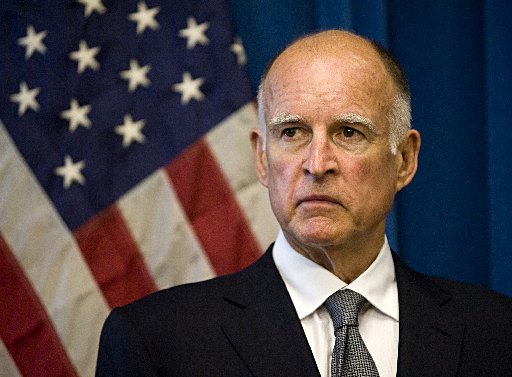Global industry is set to deliver much of the emissions reductions needed to achieve the Paris Agreement goal but closer national and international policy and implementation strategy partnerships together with governments will help business take further, faster action.

This was one of the key messages on Sunday, November12, 2017 from business leaders and high-level politicians at the special Industry Day event at the COP23 UN Climate Change Conference, where the 2017 Climate and Clean Air Awards were presented to governments, businesses and NGOs for efforts to reduce short-lived climate pollutants.
“California strongly supports the United Nations’ unstoppable move to decarbonise the world economy. We join with states across America – and around the world – that will continue aggressive action to curb greenhouse gas emissions,” said Jerry Brown, Governor of California and a leader of climate policy in his home state.
“Industry is taking action on climate change like no other period in history,” said Peter Bakker, President and CEO at the World Business Council for Sustainable Development (WBCSD). “The transition to the low-carbon economy is inevitable, and business will continue to implement the solutions necessary for fulfilling the Paris Agreement.”
Business and other non-state actors at the event urged COP23 country negotiators to consider:
- How to ensure a structured policy dialogue between governments and other stakeholders through the Marrakech Partnership for global Climate Action.
- How to formally introduce and incorporate input from non-state actors in the Facilitative Dialogue between governments on where we are, where we want to go and how we get there.
- Building partnerships for resilience across global supply chains and in vulnerable communities experiencing climate impacts
- Supporting carbon markets and enabling cross-border collaboration on emission reduction efforts
The central goal of the Paris Agreement is to keep the average global temperature rise well below 2 degrees Celsius and as close as possible to 1.5 degrees. About one degree of that rise has already happened, underlining the urgency to progress further and faster to cut the greenhouse gases that cause global warming.
Getting on track to that goal is required if the world is also to achieve the 17 Sustainable Development Goals under the UN 2030 Agenda, and faster action by global industry is a cross-cutting requirement for every one of these 17 goals.
Policy and Clarity on Glboal Climate Action System Critical to Boost Progress
Since 2015, over 600 companies with combined revenues of more than $15 trillion have made over 1,000 commitments to climate action through We Mean Business.
Many are going 100% renewable through RE100, implementing science-based climate targets and collaborating across sectors through the Low Carbon Technology Partnerships initiative (LCTPi). These ambitious companies are collectively driving the transition to the low-carbon world.
Taken together, the ambitions of LCTPi alone are estimated to target 65% of emissions reductions necessary for remaining under the 2°C limit, and could channel $5-10 trillion of investment into the low-carbon economy while supporting millions of jobs worldwide.
This is a just fraction of what industry can contribute to implementation of the Paris Agreement because there is significant untapped potential for what could be accomplished in the right policy environment.
“Industry will deliver the low-carbon economy of the future. Forward-thinking companies must continue to push policy in the right direction,” said Nigel Topping, CEO of We Mean Business.
2017 Climate and Clean Air Awards Underline Partnership Power
To highlight the contributions of industry, the Climate and Clean Air Coalition on Sunday recognised the importance of industry actions to reduce climate pollutants, as well as government efforts to create the policies and regulations that enable these activities and inspire innovation.
Manuel Pulgar-Vidal, a jury member for the 2017 Climate and Clean Air Award, Head of Climate and Energy at WWF, and former Minister of Environment for Peru and President of COP20, said the winners represent what fast climate action looks like.
“When we came up with the concept of an Action Agenda, these were the type of activities we had in mind. It is about government, industry and civil society working together to make changes at different levels of society to move us toward a safe future that benefits all,” he said
As business and other non-state actors act together on climate like this, they serve as proof for policymakers that strong climate targets will be supported by the implementation of practical solutions.
“Business can provide policy advice to governments for setting up suitable framework conditions,” said UNIDO Senior Programme Management Expert, Takeshi Nagasawa. “As a knowledge-sharing and project development platform, UNIDO can help capitalise on the sustainable energy aspects of Industry 4.0 by transforming systems or leapfrog technology waves.”
It’s clear that industry is leading the way to a low-carbon world and that companies are poised to work with governments.
“We are key implementation partners for the Paris Agreement. The in-depth transformation requires all sectors of society to join forces. Business is willing to do its share to lead the way and to be instrumental in the delivery,” said Jean-Pierre Clamadieu, Solvay CEO and WBCSD Vice-Chair.
